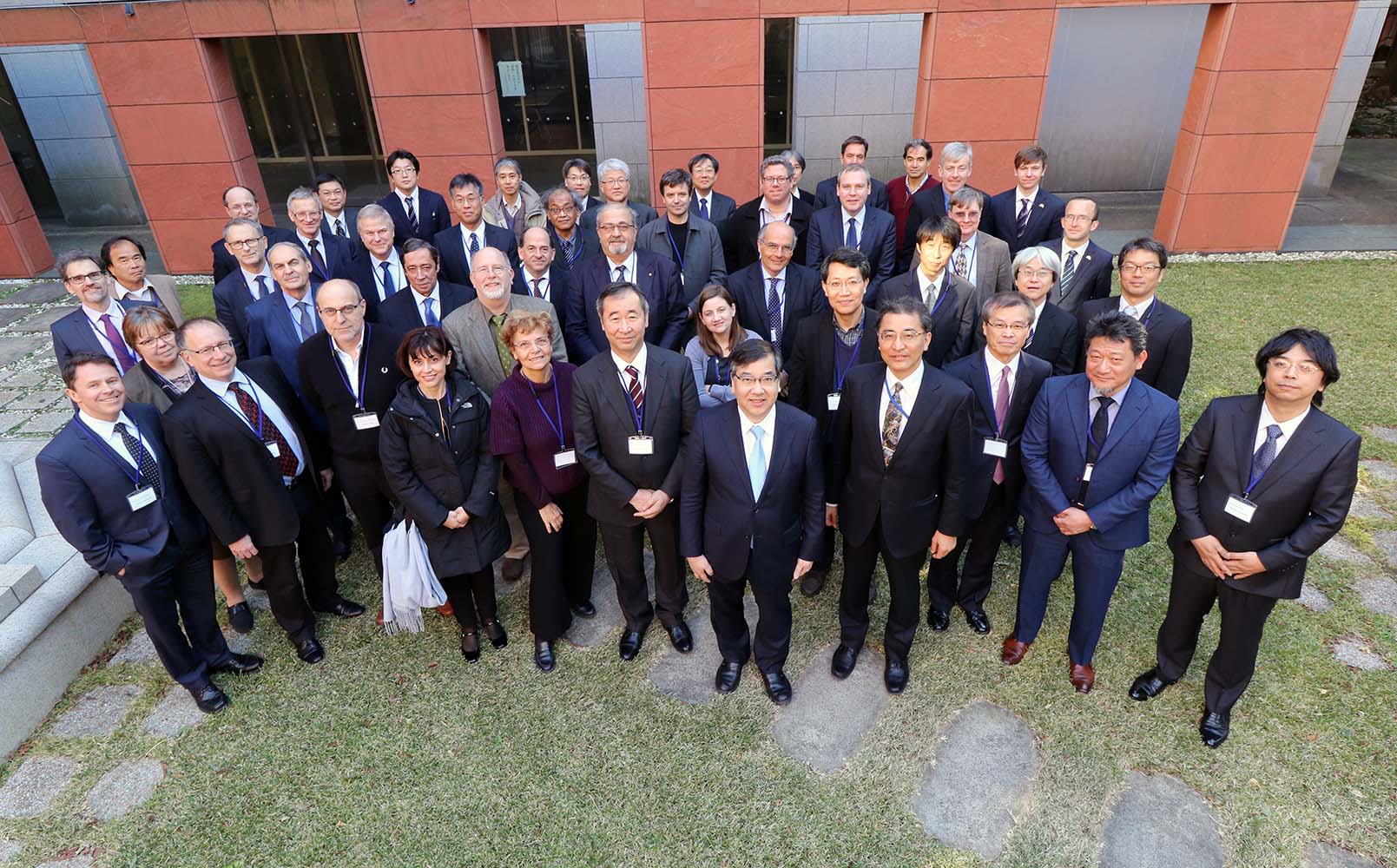The first meeting of the Hyper-Kamiokande Experiment Financial Forum (HKFF) in which the foreign agency representatives gathered to engage in discussions with the host organizations and the project members, was held at Kojima Hall, Hongo Campus, The University of Tokyo on January 11th ,2019.

Hyper-Kamiokande (HK) is a new world-leading international scientific research project and aiming to start its operation in the second half of the 2020s. The HK detector is planned to have eight times larger fiducial mass than its predecessor detector, Super-Kamiokande, and it is equipped with newly developed high-sensitivity photosensors. The aim of HK is to elucidate the Grand Unified Theory and the history of the evolution of the universe through an investigation of proton decay and CP violation (the difference between neutrinos and antineutrinos), together with the observation of neutrinos from supernova explosions.
In October 2017, the Next-Generation Neutrino Science Organization (NNSO) was established in the University of Tokyo by the Institute for Cosmic Ray Research (ICRR), the Kavli Institute for the Physics and Mathematics of the Universe (Kavli IPMU), and the School of Science to cooperate in pioneering the future of neutrino physics programs through the development of neutrino research techniques and detector technologies. Professor Takaaki Kajita, the director of NNSO, invited the foreign agency representatives and researchers from 14 countries (Armenia, Brazil, Canada, France, Italy, South Korea, Poland, Russia, Spain, Sweden, Switzerland, UK, USA and Japan) and about 50 people gathered to hold discussions.
Click here to read more.





